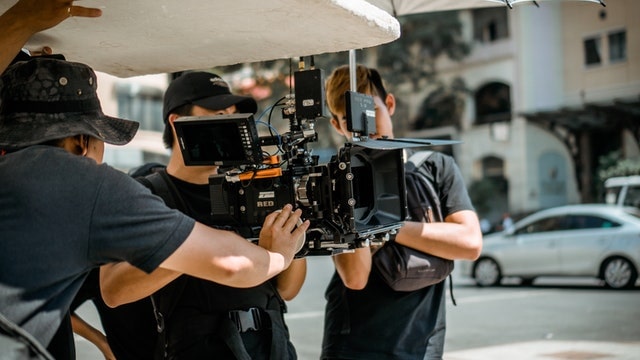Do actors and supporting artists need DBS Checks?
As with any industry, robust safeguarding measures are absolutely vital in TV, film and theatre, so it’s important to know whether the people working in these contexts should be checked.
In this blog we’ll explain everything you need to know about DBS Checks for actors and supporting artists.
The different levels of DBS Check
Before we delve into the specifics of DBS Checks for actors, let’s look at the different types of check that are available.
There are three different levels of DBS Check – Basic, Standard and Enhanced – and each level has different eligibility criteria.
A person can only have a DBS Check if they meet the eligibility criteria for that type of check.
- Basic Check: A Basic DBS Check will show any unspent convictions the applicant has. Basic DBS Checks are available to anyone aged 16 or over – there are no other eligibility requirements.
- Standard Check: A Standard DBS Check will show any spent or unspent convictions, cautions, reprimands or warnings the applicant has. The Rehabilitation of Offenders Act 1974 (Exceptions) Order 1975 contains a list of professions and roles that are eligible for a Standard DBS Check.
- Enhanced Check: An Enhanced DBS Check will show the same information as a Standard Check, as well as any information held by the applicant’s local police force that is deemed relevant to the check.Eligibility for Enhanced Checks is a little more complex but, as a rule of thumb, employees who work in regulated activity with children and/or vulnerable adults are likely to be eligible. To find out more, see the DBS guidance on eligibility for Enhanced Checks.
What sort of check are actors and supporting artists eligible for?
In general, actors and supporting artists are only eligible for Basic DBS Checks as their roles do not meet the eligibility criteria for Standard or Enhanced Checks.
This will be the case even if they’re working on a production with children in it, as the children involved will always be supervised by a chaperone or parent/guardian.
An actor or supporting artist would only be eligible for a higher-level check if they were also carrying out regulated activity with children in addition to their acting role.
For example, if an actor was teaching, training or instructing child cast members, they may be eligible for an Enhanced Check.
If you’re not sure whether a role is eligible, see the DBS guidance we linked to above or get in touch with us.
Basic Checks for supporting artists working in TV and film
In 2016, a group of major broadcasters including the BBC, Channel 4, Channel 5, ITV, Sky and TV trade association PACT, brought in new guidelines around Basic DBS Checks for supporting artists.
These broadcasters now require all supporting artists working on productions involving under 18s to have a Basic DBS Check.
How to apply for a Basic DBS Check
Applying for a Basic DBS Check is easy. For all applicants except non-EEA national (European Economic Area) applicants, you’ll need to provide one document from Group 1, which includes:
- Your birth certificate (issued within 12 months of birth)
- Your current/valid passport
- Your current driving licence photocard (this can be a full or provisional licence)
And a further document from Group 1 above or Group 2, which includes:
- Your marriage/civil partnership certificate
- A bank or building society statement issued within the last 3 months
- A utility bill issued within the last 3 months
Check out our blog for more information about the documents you can provide to apply for a DBS Check.
If you’re a non-EEA applicant, this guide has further information on the documents you will need.
Apply now through our simple online platform, or check out the DBS guidance on Basic Checks to find out more.







